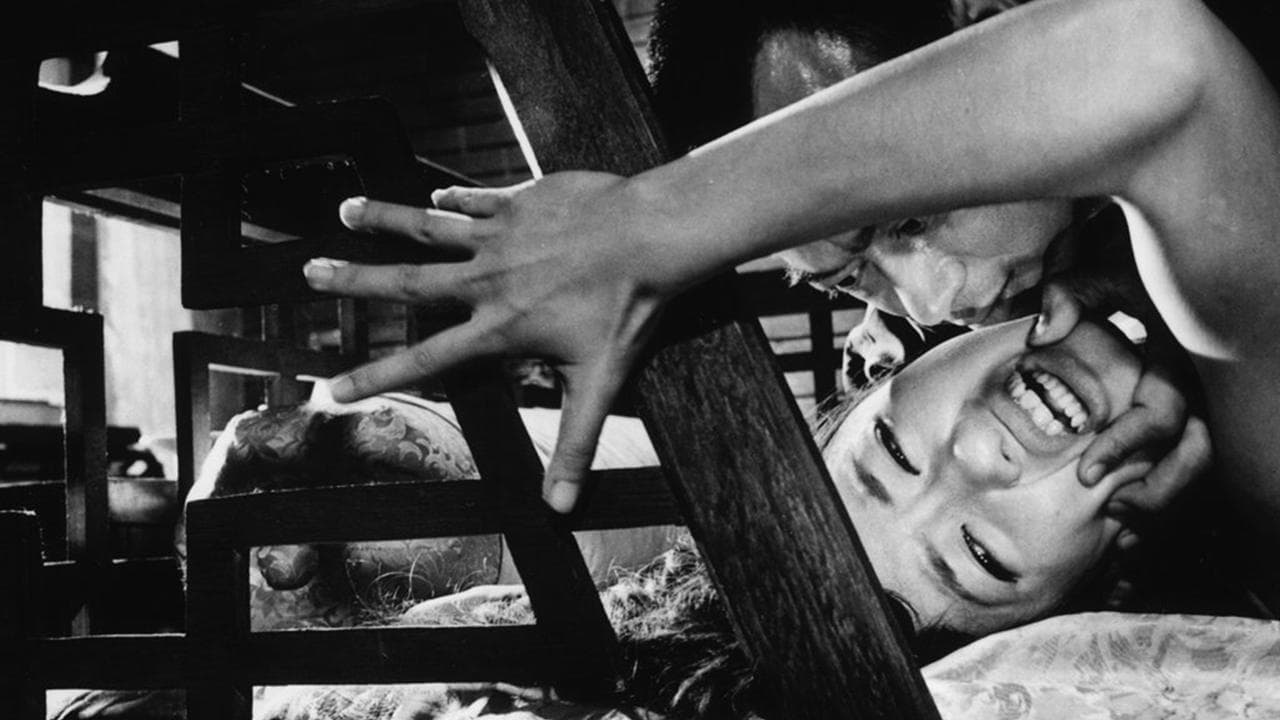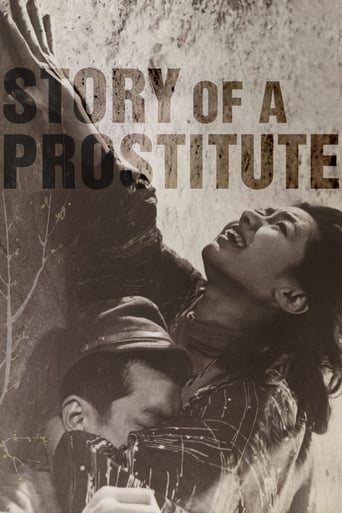



Wonderful character development!
just watch it!
It is a whirlwind of delight --- attractive actors, stunning couture, spectacular sets and outrageous parties.
View MoreThe film's masterful storytelling did its job. The message was clear. No need to overdo.
View MoreViewed on DVD. Subtitles = three (3) stars. Director Seijun Suzuki's Jidai-Geki genre anti-war film set during the second Sino-Japanese War (in mid Twentieth Century) is a ludicrous photo play attempting to illustrate the ludicrous nature of war. The plot is about a professional sex worker (who is not a "comfort woman") in Northern China pursuing (literally--all over the screen including in the middle of military maneuvers and in the midst of battles!) a Japanese mid-ranking soldier (who is a reluctant lover at best). This is a prostitute who works out of a Japanese brothel (which seems to be worker owned and operated) consisting of about a dozen women. They are supposed to be the only sex workers in the region with each servicing, perhaps, up to a hundred military clients per 24 hours! The Chinese fighters are depicted as the "good guys" and the Japanese mostly as brutes (the exceptions being those who desert and those who will not execute the prostitute's lover who had returned (he was actually dragged by the hooker through war zones) to base camp as an injured combatant instead of following military protocol and killing himself in the field when wounded). After about 90 minutes of this repetitious nonsense, the protagonists engage in the "traditional" lover's joint suicide (which does not come soon enough for bored viewers who are still awake!). The Director does not appear to be in control of his actors and actress--they seem to have been given Carte Blanche! Whatever the reason, acting is across-the-board terrible or nonexistent--it's amateur-night all round. Leading actress Yumiko Nogawa delivers a 1.5 dimensional character with back-and-forth "acting" that ranges from phony sobbing to screaming. Cinematography (wide screen, black and white) is okay, but some scenes are on the dark side (which subtracts rather than adds to the drama when the viewer really needs to see what is going on---starting with the opening credits). Interior scene continuity is sometimes missing. The back lot exterior set looks patently phony. Special effects (mostly explosions and a bit of rear-screen projection thereof) are good. Subtitling is incomplete. Some signs are not translated. Almost all singing (of which there is quite a lot and often integral to the story line) is not subtitled. As usual, Criterion's DVD menu makes it difficult to easily determine if subtitles are turned on or off---seems to be a company tradition! Aggressive avoidance recommended. WILLIAM FLANIGAN, PhD.
View More"Sunpu Den" is a film from director Seijun Suzuki is both anti-war and anti-prostitution, as it paints a bleak story of a young woman, Harumi. The story begins with Harumi being dumped by her boyfriend. In reaction, she volunteers to be a 'comfort woman' on the Japanese front lines in China. The comfort women were prostitutes provided by the government for the troops--and this small group of women are to satisfy the sexual needs of a thousand men! To make things worse, the Adjutant in charge is a brutal jerk who mistreats the women. Harumi hates him, though she later falls in love with this man's assistant. What happens next is a tragic waste of life and is an indictment of the Japanese war machine.This is what you might call a 'feel-bad movie'. It is meant to be sad and awful and it is. The film is compelling viewing but isn't nearly as good as other Japanese anti-war films like "Burmese Harp" or "Fires on the Plain". Very good but not great.
View MoreBased on a novel written by Tamura Taijiro, and is actually a remake of 1950 Toho film Escape at Dawn directed by Taniguchi Senkichi with stars Ikebe Ryo and Shirley Yamaguchi, director Suzuki Seijun transformed a Nikkatsu ready-made routine script with low budget and tight schedule into one of his finest arts. Without digressing from the script or the novel, he recreated his signature world that is abstractive and ideological. Even though this is a B-movie, or maybe because it is, Suzuki with the production designer Kimura Takeo displays fantastic backdrops using some painstaking techniques of visual effects, superb studio sets and location filming behind outstanding performances acted by Kawaji Tamio, Nogawa Yumiko and Tamagawa Isawo. Compare to the Escape that has altered some elements from the Tamura's original this Suzuki version is essentially true to it, therefore Suzuki version has quite important elements such as the prostitution in the Army, multiple stratum of knotty personae and complicated layers of grotesque psychological characterizations concomitant to their bizarre relationships all of that are omitted in the Taniguchi's "fine literary effort." Along with his sense of unique humor these deep feelings the film radiates might be inspired from his own war experiences as a soldier during the WW II and it could be said that, in this regard, some similarity might be in Samuel Fuller's, many of these films are also deeply affected by Fuller's own war experiences.
View More***Mild spoilers***A much different movie from Suzuki's frenzied free-jazz yakuza flicks. Here he conforms more closely with traditional storytelling, though not without a few "reality breaks." The beautiful b&w cinematography is a far cry from the grittiness of Branded to Kill or the gleeful colors of Tokyo Drifter. Also, there is a great deal of sentiment here, and a more direct treatment of Japanese honor themes.The Suzuki touch is still there though. Plenty of violence and sexual tension. There is a playful special effect "tearing up" the bad-guy adjutant early on, and some jarring wish-fulfillment/fantasy sequences. I was most impressed by the camera placements and movements, especially in the third act. The heroine's mad dash through the war zone at the hour point could stand side-by-side with any director's battle scene proudly. I seriously doubt that Arthur Penn saw this movie before Bonnie and Clyde, but when you see the farewell shots of the two protagonists, you have to wonder....8 out of 10
View More